Here's an article written by Tripp Mickle of Sports Business Journal about the work of the Pro Swimming Task Force.
- Enjoy!
http://www.sportsbusinessjournal.com/article/65687
Swimmers would trade some rights for pay
By TRIPP MICKLE
Staff writer
Published May 10, 2010 : Page 05
USA Swimming has developed a plan to pay its elite swimmers more money, but swim agents are fighting the proposal because it is contingent on athletes ceding some marketing rights.
Under an Athlete Partnership Plan developed by a special task force, USA Swimming would increase direct athlete funding from $21,000 to $50,000 annually in 2011 for about 56 of its 107 national team swimmers. Only swimmers ranked in the top 16 in the world in an Olympic event would be eligible, and college swimmers wouldn’t qualify.
The funding would be contingent upon a swimmer annually granting USA Swimming marketing and image rights for promotion of the organization and its nonprofit programs. Swimmers also would agree to make two appearances annually on USA Swimming’s behalf and sign 25 autographs a year as thank you gifts for charitable purposes. The plan would allow all swimmers to feature advertisements on swimsuits and caps at select meets, as well.
Ariana Kukors says a bigger stipend from
USA Swimming would be welcome.
USA Swimming officials said the organization wouldn’t pass through marketing rights to commercial partners.
Already, the proposal has received support from swimmers.
“[The $50,000 stipend] is a huge jump and it will have a big impact for a lot of people,” said Ariana Kukors, the 2009 world champion in the 200 individual medley, who currently does not have an agent. “This gives us an opportunity to continue to train and be focused on what we need to be focused on in the water.”
The amount of money an Olympic swimmer makes fluctuates from year to year. Some elite swimmers can make less than $30,000, while others like Dara Torres and Michael Phelps can earn more than seven figures annually.
USA Swimming CMO Matt Farrell said the organization wanted to increase its financial support of elite swimmers because athletes have begun swimming later into their careers and fewer corporate opportunities are available. Of the marketing rights athletes sign over, he said, “If we’re going to invest in a partnership by putting more dollars in an athlete, then we think it’s fair and reasonable to ask for a partnership in return.”
Four of the biggest agents in swimming — David Arluck of Arluck Promotions, Evan Morgenstein of PMG Sports, and Peter Carlisle and Janey Miller of Octagon — disagree. Though the program would be optional, the agents wrote USA Swimming an 11-page letter questioning it and expressing concern about USA Swimming’s proposal to have athletes grant the organization marketing and image rights.
“Our job is focused on generating revenue for athletes, so on the one hand, we’re glad to see USA Swimming acknowledge that athlete funding is a major issue,” Carlisle said. “But making the plan available only to athletes if they forfeit their marketing rights is a major problem.”
The agents said that their concerns weren’t motivated by the financial threat USA Swimming might pose if it began to sign up athlete marketing rights, and they described the optional nature of the program as problematic because swimmers who opt out might face repercussions from coaches or pressure from their peers.
“When you’re in an environment that’s a closed environment, you can’t opt in and opt out,” Morgenstein said. “Will there be favoritism for those that sign and against those who don’t?”
Farrell said that USA Swimming would be open to looking at changes to mitigate those concerns.
The agents claim that USA Swimming revenue has increased sevenfold from 2002 to 2008 but that athlete funding has remained relatively flat. But USA Swimming said it increased athlete funding by $500 a month in July to $1,750, and claimed that is one of the highest athlete stipends in Olympic sports.
USA Swimming generated $22.8 million in revenue and had $22 million in net assets during fiscal 2008, according to its 2009 tax filing. Its budget for 2011 calls on it to spend $2.49 million on direct athlete support, but it wants to increase that total to $3.02 million in 2011.
In addition to financial support, the plan would see USA Swimming create a legal fund to help athletes with their sponsorship and marketing contracts; a speaker’s network to help athletes secure speaking opportunities with corporations; a financial consulting service; and media training and image management advice. Swimmers would keep any money they generate from speaking engagements, appearances, sponsorships they negotiate independently and sponsorships USA Swimming brings them from its corporate partnership base, Farrell said. Swimmers also could keep their own agents.
“We’re proposing the best of both worlds,” Farrell said. “They can get more money from us and keep their own sponsors and opportunities.”
USA Swimming’s board of directors approved the concepts in the plan at a meeting in early May. Staff members plan to continue to work on the program and present a final version of it to the executive committee in August. If it is approved there, it will go before the full board at a budget meeting in September and go into effect in 2011.


